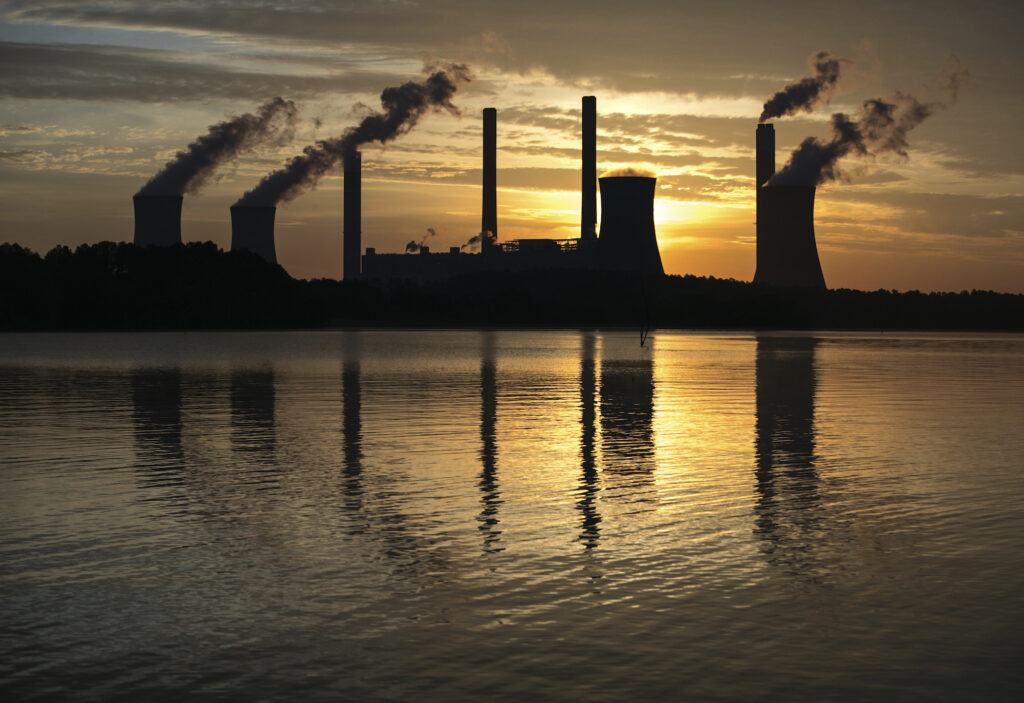
The widespread uses and benefits of digital technology are one of America’s great untold stories. Few realize that the advanced industrial economy and a high degree of innovation we’ve become accustomed to exist largely due to the use of information communications technologies, which includes everything from smartphones to laptops and digital television, and, most importantly, the vast computer-server farms that make up the backbone of what’s called the wireless “cloud,” the provider of online services such as streaming, cloud gaming, artificial intelligence, and virtual reality.
This wireless system undergirds the digital economy, performing countless tasks more quickly and easily, and more precisely and inexpensively, than other technologies. However, the system’s warehouse-scale data centers, which are jam-packed with computers and servers that move and store billions of data, require a large and growing amount of electricity. There are about 2,500 data centers in the United States, and the electricity they use equals the combined power production of Germany and Japan. This power must be delivered reliably and efficiently. But electricity production isn’t keeping up with the growth in demand.
As energy events continue to demonstrate, the reserve of electricity that regions such as the Midwest and Mountain states maintain to guard against blackouts is below the minimum deemed necessary for power reliability. In fact, it would be smaller than it already is if not for coal generation. This is especially the case in states where many of the nation’s 225 coal plants produce electricity around the clock and help sustain the digital economy.
Notwithstanding all the loose talk about replacing coal plants with renewables, the facts make it clear that coal is still vital for energy security. Solar and wind power combined provide less than 14% of the nation’s power-generating capacity, according to the Energy Information Administration. Natural gas is abundant, but its use is limited by a severe shortage of pipeline capacity. And time is running out on the nation’s aging nuclear plants. That leaves coal.
Despite environmental policies that have led to the shutdown of many coal plants, coal still accounts for about 20% of the nation’s power, and coal generation is affordable and reliable. While it may seem heretical to say, coal is essential. A few years ago, when natural gas and renewables were unable to meet power demand, a number of retired coal plants were put back into production, saving a large part of the Midwest from winter blackouts.
The North American Electric Reliability Corporation in its annual report on electric reliability warned that a large portion of the United States is at elevated risk of power shortages this winter. Just last year, power shortages in the Pennsylvania-New Jersey-Maryland Interconnection region, the nation’s largest, were narrowly averted when utilities urged their customers to conserve power. Grid operators warn that the problem has not gone away.
CLICK HERE TO READ MORE FROM RESTORING AMERICA
A nonsensical energy policy is making a bad situation worse. Not only are electricity supplies in some regions beneath the levels deemed necessary for power reliability, thereby posing a risk to data centers, but the Environmental Protection Agency is trying to force the shutdown of baseload coal plants as well. The agency’s myopia is mind-boggling. This war on coal is being waged despite the increasing need for electricity to drive the digital economy. What’s more, while the EPA’s rules immediately target the remaining coal fleet, gas plants are also at risk of being shut down. Together, coal and gas provide 60% of America’s power.
Coal and gas plants will continue to be needed because replacing them with solar and wind power will take many years. But if the Biden administration pursues its war on fossil fuels, the questions will no longer be whether rolling blackouts or grid emergencies are possible, but rather when and where they will happen.
Mark J. Perry is a senior fellow emeritus at the American Enterprise Institute and a professor emeritus at the University of Michigan.
